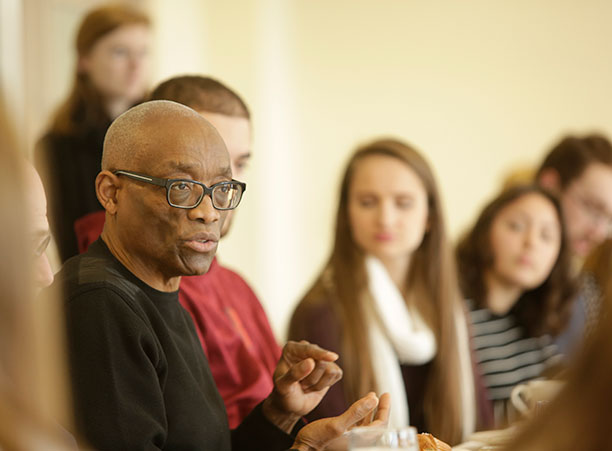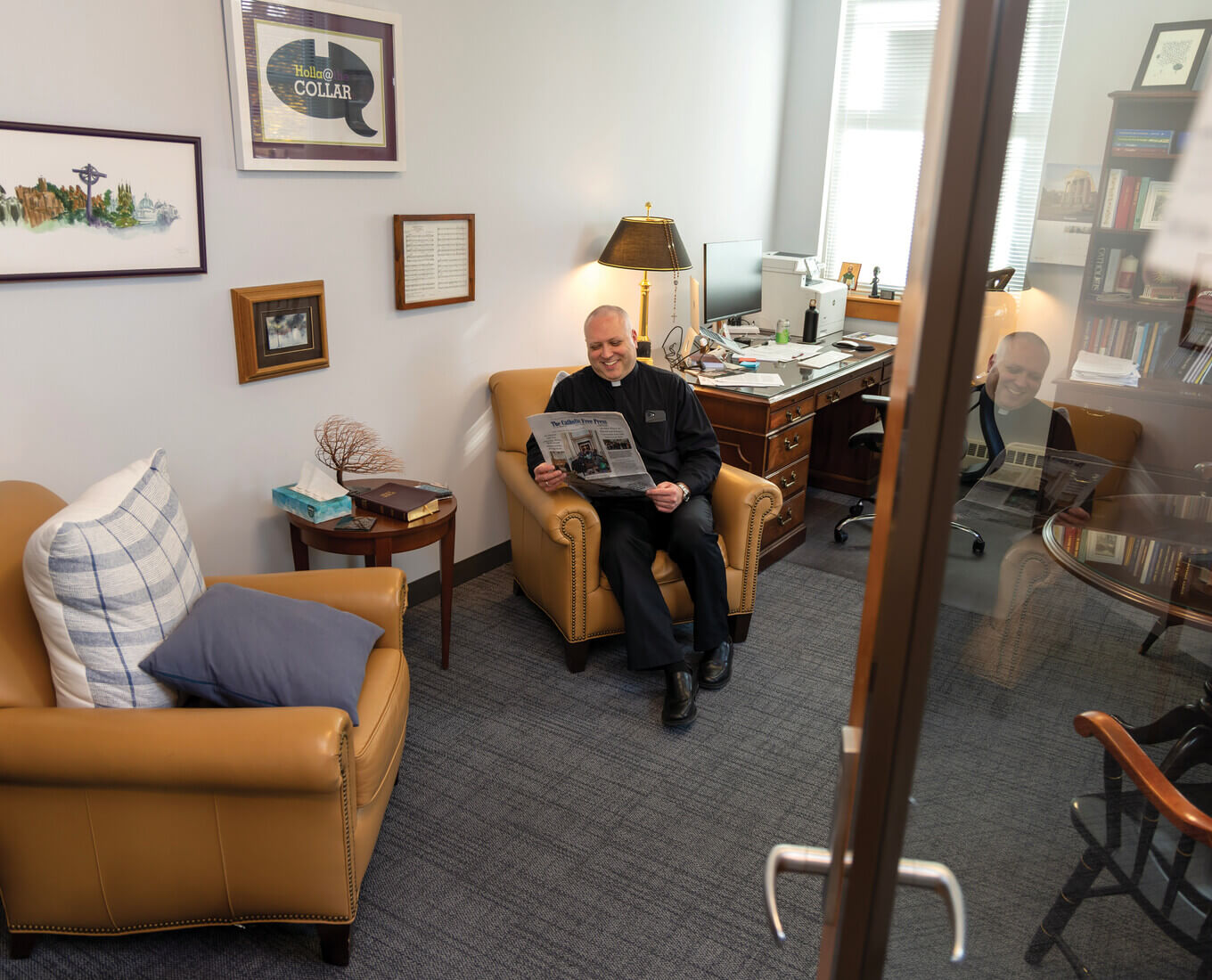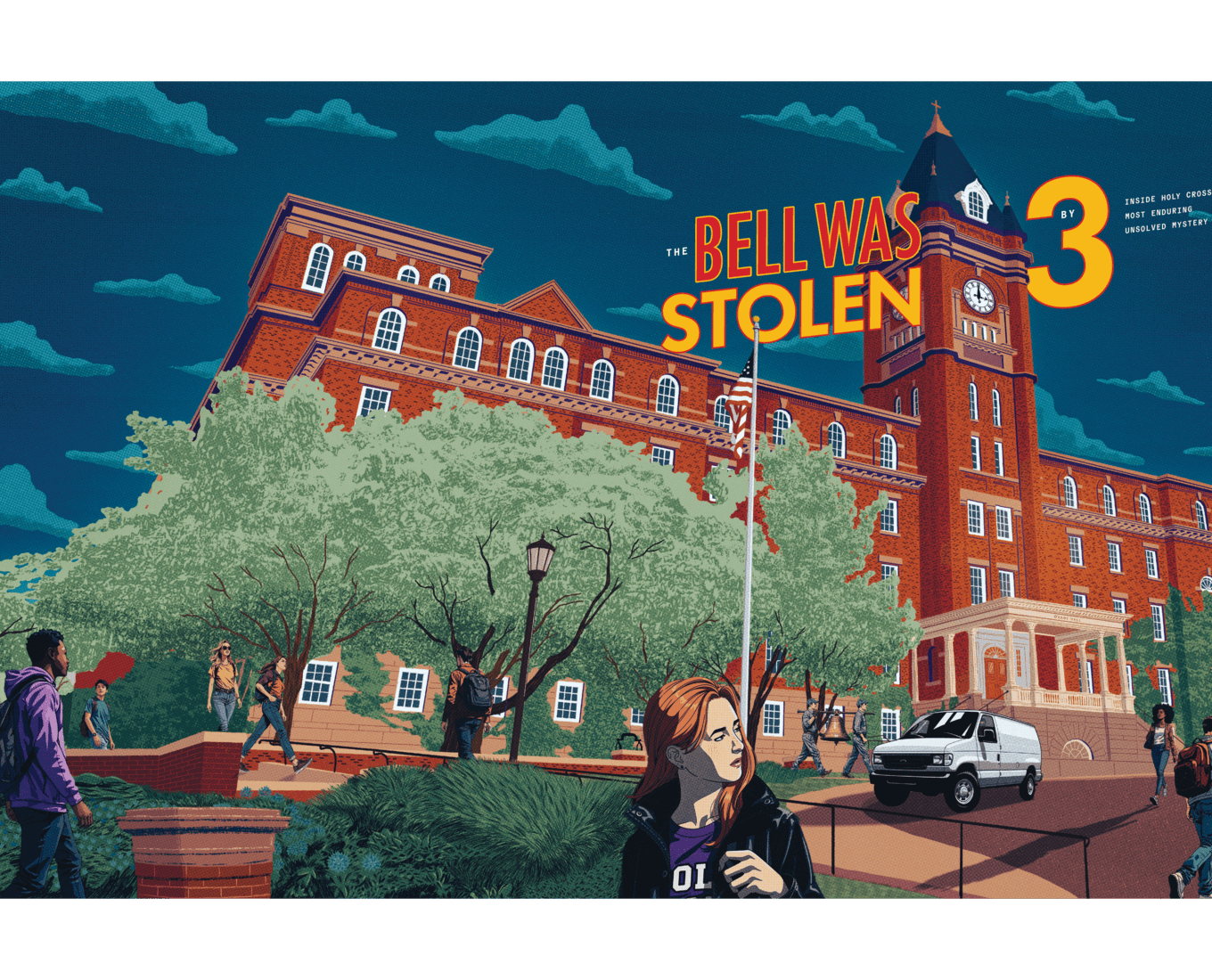
The morning after his engaging lecture, as part of a creative residency with members of the Bill T. Jones/Arnie Zane Company at the College of the Holy Cross, legendary choreographer Bill T. Jones held an intimate discussion with students, majoring in everything from chemistry to theatre, to delve into a different kind of dance — the reality of mortality, the importance of ambiguity in art and how his personal life has been reflected in his work.
"Art does for me what religion traditionally did — organized semblance to the universe," Jones shared, seated in the middle of 25 students.
In an interview with Jared Bowen, host of WGBH's Open Studio, held after the discussion, Jones spoke more broadly about his relationship with art throughout the years.
"Art was something that felt good coming out — terrifying, and oftentimes I found that when I looked at the people who were looking at me, something happened between us that I was hungering to have happen. I felt a closeness, 'simpatico.' I felt potential. I felt loved. I think art did that."
Jones approached his conversation with Holy Cross students with the same type of openness, pushing them to consider their own relationships with art, and how they might answer the questions they were asking of him.
While discussing his iconic work, like "Still/Here," about people living with life-threatening illnesses, and the more recent "Analogy" series, about the stories of four different people, both fictional and non-fictional, one student asked if Jones thought one his "Analogy" characters was a good person.
"Are you a good person?" Jones asked in return. "What the hell is a good person? Have you thought about it? I won't ask you — that's between you and your God. But an artist like myself has got to make work that suggests all the possible answers to that. Art is not standing and telling you that 'I believe in good and evil.' Art has got to show you ambiguity."
Throughout the conversation, Jones asked students questions that challenged them in more ways than one.
"I think the first couple times he did that, people were really uncomfortable," says Katie Santoro '19, a chemistry major. "But it underscored that he's not an all-knowing person. Even if you see someone as an inspiration, which I think Bill is, you can't turn to someone like that and expect them to have all the answers. You also have to reflect within yourself. Bill could have given answers to every question that was asked of him, but he understands the power of a question or the power of being asked a question."
Jones is used to both asking and answering difficult questions. "Still/Here" came to life after Jones lost his longtime partner, Arnie Zane, to AIDS and he came forward with his own HIV-positive status. When Americans were struggling with the realities and stigma of the epidemic in the late 1980s and early 90s, Jones was creating work to thrust the public into dialogue.
With Bowen, Jones recalled how one student asked him how he's kept going, with everything he's been through and as he's getting older.
"I quoted the great Georgia O'Keefe when they asked her, 'Well, how do you keep going?' and she said, 'Out of spite.' It isn't always harmony and all. Sometimes it's just the way you push against the world when the world is at its most daunting, mediocre, brutal and uncaring. Then you have to stay with your art and just push against. Because there's your meaning — there's your life."
As part of the creative residency sponsored by Arts Transcending Borders and the department of theatre and dance, two members of the Bill T. Jones/Arnie Zane Dance Company spent the semester teaching a course with Jimena Bermejo, director of the dance program at the College.
"The students and I got exposed to some of the creative practices that Bill uses in the development of his work — and working with two dancers from outside campus also brought new expectations and ideas to the classroom. The students really opened up and tried everything, even if some of the concepts were challenging."
"The best piece of advice we got was to get comfortable with the uncomfortable," said psychology major Sierra Hannough '18 about learning from dancers Christina Robson and Carlo Antonio Villanueva. "Christina would say if you don’t want to do it, it means you’re on to something important."
Watch the WGBH Open Studio interview with Bill T. Jones (begins at 5:37):
Famed Choreographer Bill T. Jones Talks Art, Ambiguity in Intimate Roundtable with Students
The recipient of a McArthur 'Genius' Award and two Tony's offered a lecture and discussion sessions, his visit featured on WGBH's Open Studio
Read Time
4 Minutes


